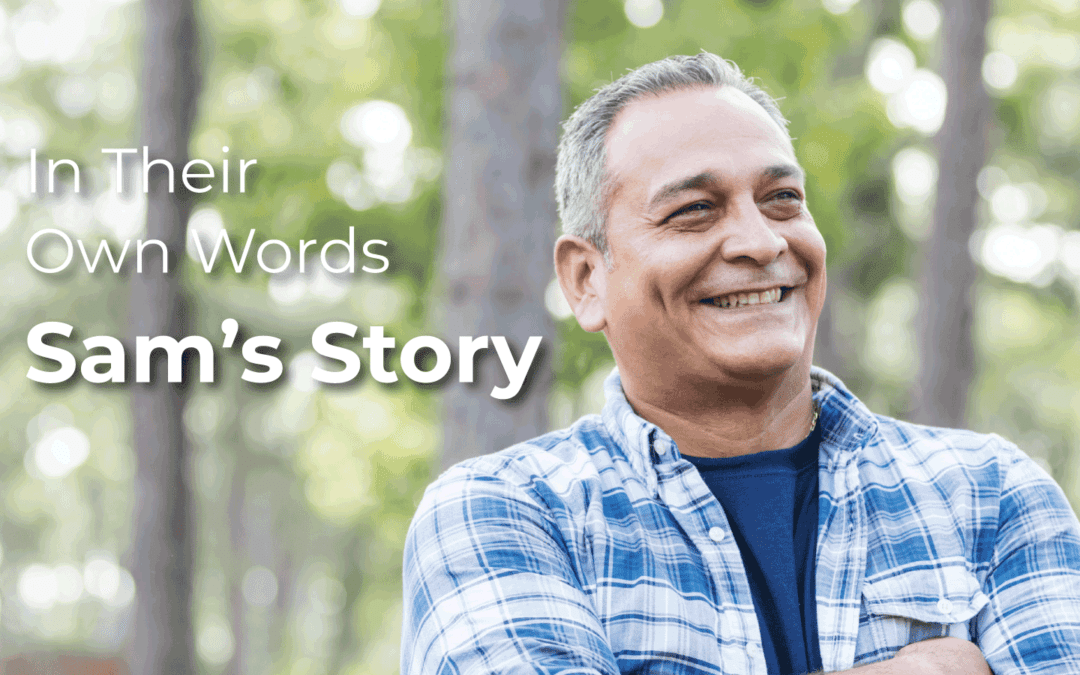Looking back on it, my desire for gambling was sparked when I was a kid going to carnivals. I couldn’t do enough to win that goldfish or that toy. Little did I know that that insatiable urge would eventually find me sleeping in a casino parking lot on my motorcycle – homeless, jobless and broke.
My dad was always a gambler and a drinker, and I guess that’s just the way I was raised. It all seemed a part of life. My dad would play poker with friends at Christmas and I wanted to play. Instead, I was given a deck of cards to play by myself.
I grew up in a town in South Dakota that, in the 1980s, essentially became the third legal gambling destination in the country — after Las Vegas and Atlantic City. When I turned 16, I managed to play video poker, even though the legal age was 18. I won my first jackpot — winning $125 on 25 cents! — and that was the beginning of the end.
When I turned 21, I was excited to gamble with my dad and brother. I was up for anything to do with gambling.
I gambled off and on for the next 20 years or so. I also had drinking and drug problems and had been in and out of several treatment centers for drug and alcohol abuse. In 2006, I was sentenced to prison for eight years for writing bad checks and fraud. I remember asking the judge if they had a gambling court as they do for drugs and alcohol, but they had no equivalent.
The way I learned about help for gambling in the form of Gamblers Anonymous (GA) was accidental. I was out on parole after four years of the eight-year sentence and was sent to a halfway house. I remember asking if there was an alcohol or drug meeting close by that I could walk to. The response was, “Yes, but unfortunately it’s only a GA meeting.”
I went to that meeting and that’s when I first found a certain sense of home. I remember thinking, “These people understand why I can’t stop gambling.”
When I first found the GA community, I thought I had my gambling woes — as well as drinking and drugs — whooped. But while I found the right people, I didn’t use the tools properly. Still, I knew from then on that I had a place to go.
I had several relapses, including one after I was six years clean. There were times when I thought I could be a social gambler but my addiction would just pick up where it left off. I realized that what I was missing was not believing I was powerless.
For two weeks at the depth of my gambling addiction (along with other addictions), I hit rock bottom. I’d lost my job and relationship, was on meth and was broke. I had no place to go. I slept near the fireplace of a casino until Security kicked me out. That’s how I ended up sleeping with my bike against a wall in a casino parking lot. I really didn’t want to live any more.
But this time I picked myself up. From the casino parking lot, I ended up at the Union Gospel Mission homeless shelter in St. Paul. While there, I had a moment of clarity and remembered that I still had my sponsor’s phone number from when I attended two GA meetings months earlier. I called him, desperate for help. He was willing to help me, but only if I helped myself. I was ultimately able to get to a regional treatment facility, which helped me get to a healthier place, though I still relapsed for a short time after that. I can’t explain why gambling was the one addiction that I relapsed. I’ve come to realize how baffling and powerful a gambling addiction can be.
The last time I relapsed was six months ago. I’ve never stopped going to meetings and I have a powerful circle of recovery friends. I believe that I don’t have another relapse in me.
I’m 51 and starting school at Metro State University. I haven’t picked a major yet but my goal is to try to get into something where I can be a voice for the court system in compulsive gambling. I want to become a licensed alcohol and drug counselor (LADC) and help others like myself.
I definitely feel like I’m a miracle. I was institutionalized for a chunk of my life. I know I’m not perfect today and still have problems, but it’s a much better life.

